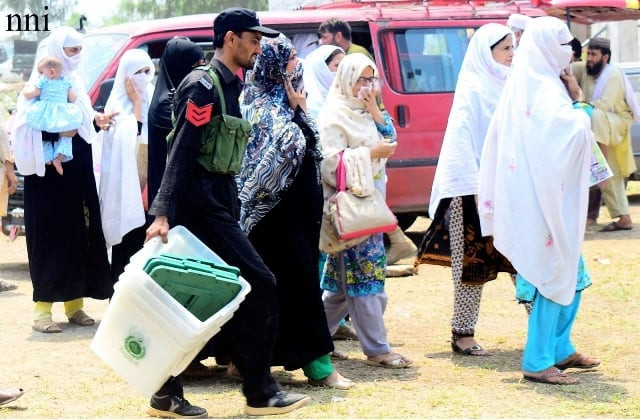Importance of provincial elections in ex-FATA
The most important contribution of these elected representatives could be to pinpoint issues

Historic polls were held in tribal districts. PHOTO: INP
One way or the other, elections for provincial legislative assembly had to be held in the former Fata, as the region had been merged with the K-P province in May 2018. These elections were a constitutional requirement and symbolically needed by the state institutions to justify the merger.
Politically speaking, giving representation in the K-P Assembly to the elected members from the tribal districts is a milestone. Practically, this representation may not play any consequential role in the stability and development of the merged region, because mere 16 members in a house of 115-seat legislative assembly is not likely to make a big difference. Only a handful of representatives of the newly-merged districts may become ministers or advisers. A minister has to look after his or her department in the entire province, far bigger than the merged districts. Therefore, these would-be ministers from tribal districts would not contribute anything substantial to the stability of their region — a Herculean task by all means. The most important contribution of these elected representatives could be to pinpoint issues and the potential of their respective areas. However, identifying issues cannot always result in addressing these problems.
The representatives of the people from the merged tribal districts in the K-P Assembly would also be unable to contribute significantly to the development of the region due to the enormity of the challenges of development. The federal government has already earmarked more than Rs100 billion this year to uplift areas of ex-Fata, and plans to spend Rs1,000 billion over the next 10 years for the development of the region. Plans are already on the ground to use up these funds and it seems that the newly-elected members of the K-P Assembly will have no role in these plans, claims notwithstanding.
Furthermore, sensing their powerlessness, members from the tribal districts may form a group within the provincial assembly very much like the National Assembly members from Fata, who always had to secure power and privileges for the group members instead of residents of the tribal region. The only sufferers of this situation would be the people of ex-Fata. More importantly, the highest number of elected members (6) contested the July 20th elections independent of any party affiliation. They may choose to remain independent, join the ruling PTI or an opposition party. If most of the independent members join the PTI, there will be more aspirants for ministerial slots as five PTI members have also won the elections. The PTI government in K-P may not accommodate more than a few, as it does not need to, given it already has a two-thirds majority. In case the opposition parties, which together have won five seats, attract some of the independently winning candidates to their ranks, the situation would foment more hopelessness amongst the newly-elected representatives as they would remain powerless for four long years.
Another very important negative effect of having only 16 elected representatives from ex-Fata is that if their expectations remain unfulfilled, they may demand a new administrative arrangement, making the entire merger highly questionable.
Thus the first-ever provincial assembly election will not contribute to the stability and development of the region. Nevertheless, despite their inconsequential nature due to structural lacuna, the elections would go a long way in the political education of the tribal people. However, the way forward is prompt local government elections in ex-Fata so that the ground work for the process of rehabilitation and development could be laid and money from international donors can be brought into the region.
Published in The Express Tribune, July 24th, 2019.
Like Opinion & Editorial on Facebook, follow @ETOpEd on Twitter to receive all updates on all our daily pieces.















COMMENTS
Comments are moderated and generally will be posted if they are on-topic and not abusive.
For more information, please see our Comments FAQ